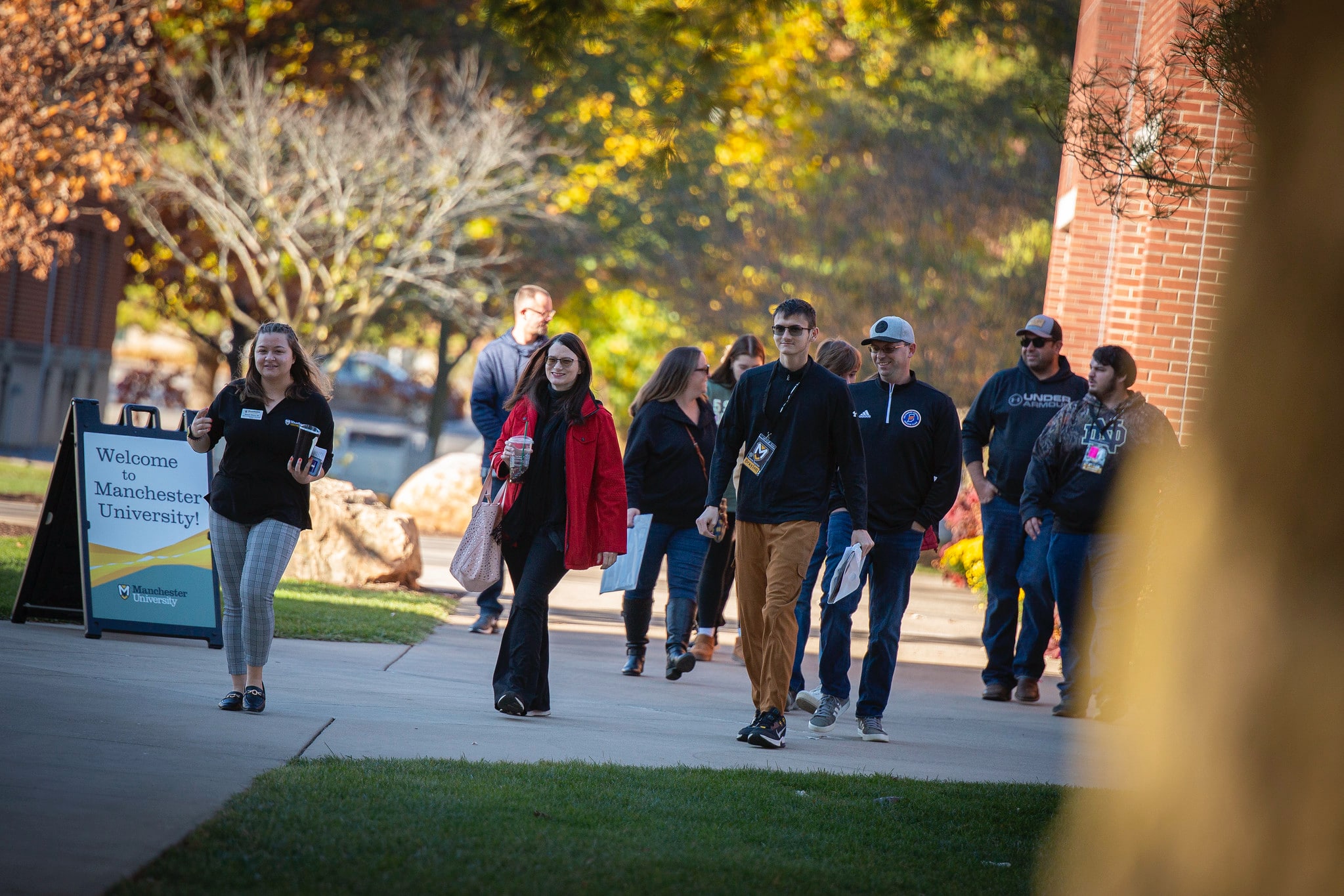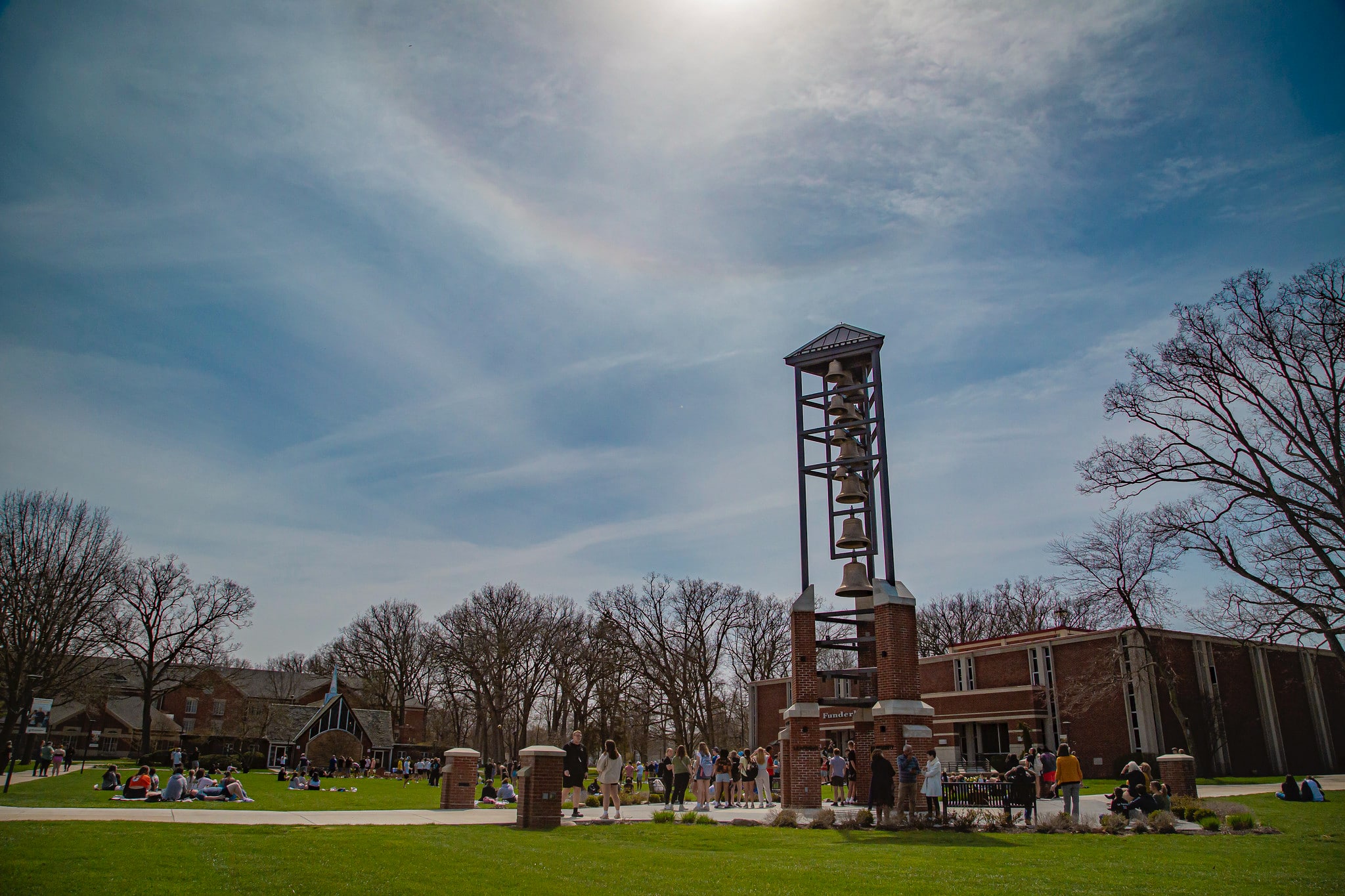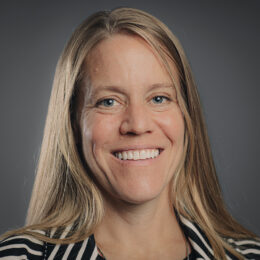Religious Studies
Manchester’s Religious Studies program explores world religions, theology, and ethics through historical and contemporary lenses. You’ll develop critical thinking, cultural awareness, and communication skills that prepare you for a wide range of career paths.

A Global, Thoughtful Approach to Religion
Study Religion from Many Angles
The Religious Studies program engages in the academic study of religion, which aims to understand religious phenomena – texts, beliefs, doctrines, practices, and worldviews – by way of historical, critical, and constructive methodologies. The Religious Studies program engages in the academic study of religion, which aims to understand religious phenomena – texts, beliefs, doctrines, practices, and worldviews – by way of historical, critical, and constructive
methodologies. Topics students will study in the religious studies program include:
- World religions and comparative studies
- Biblical and theological analysis
- Religion and social justice
- Peace and conflict studies
Program Information:
Major | BA
- 24 Credit Hours
Minor
- 18 Credit Hours
Location
- North Manchester
Why Choose MU for Religious Studies?

Academic Study of Religion
Interdisciplinary Exploration
We encourage a rich, interdisciplinary exploration of being, knowledge, ethics, and spirituality—ideal if you’re drawn to questions of faith.
Personalized Mentoring
What You Can Do with Your Bachelor’s Degree in Religious Studies
Chaplain
Provides spiritual guidance and emotional support in hospitals, prisons, or military settings.
Faith-Based Nonprofit Director
Leads community outreach programs centered on social justice and faith values.
Religious Educator
Teaches theology and ethics in schools, churches, or retreat centers.
Interfaith Dialogue Coordinator
Organizes events promoting understanding and collaboration among diverse religious communities.
Human Resources Manager
Ensures a positive and productive work environment through diverse cultural and religious perspectives, and legal compliance

Average Starting Salary for Religious Studies Degree Holders
Graduates with a Religious Studies degree find meaningful employment in a variety of fields—whether in ministry, nonprofit service, education, or advocacy. Nationally, about 537,520 people hold degrees in philosophy and religion, with a median annual wage of around $60,000. Those who become clergy earn a mean wage of $63,720 per year, with median pay near $58,920, and job growth expected to be modest (~3% through 2033).
Postsecondary educators (such as philosophy and religion instructors) fare even better: the occupation employs approximately 20,320 individuals, with average annual earnings nearing $89,680, and is projected to grow by 8%—faster than the average—for 2023–33.
Beyond teaching and ministry, Religious Studies majors often enter community and social-service roles where median wages range from $45,000–$60,000, depending on the position and setting. Among theology graduates, nearly one-third work in community and social service occupations, while 11% are employed in educational instruction and library roles.
Whether guiding spiritual growth, educating the next generation, or advocating for social justice, Manchester’s Religious Studies majors are well positioned to secure stable, impactful careers with solid earning potential and steady job outlooks.
Projected growth is strong in fields like tech ethics, public policy, nonprofit leadership, and education. As society grapples with complex moral and philosophical issues—such as artificial intelligence, climate change, and bioethics—the demand for people who can think critically and ethically is on the rise.

MU & Bethany Theological Seminary
Add Graduate-Level Religious Studies to Your Degree
Beginning in fall 2025, a new initiative between Bethany and Manchester offers a creative way for undergraduate students interested in doing graduate work to include courses from Bethany as part of their programs. In addition to your bachelor’s degree from Manchester, you could earn either a graduate certificate or a Master’s degree from Bethany in a reduced amount of time and with no additional costs for these graduate classes. With Bethany’s technology classrooms, Manchester students will be able to participate fully in these courses with students in Richmond, across the country, and internationally, all without needing to travel. We are pleased to pilot this new initiative, strengthening our long-standing relationship with Bethany Theological Seminary.
For more information
- Current students, please contact your academic advisor.
- Future Students, please contact your Admissions Counselor
Meet the Faculty
Religious Studies Learning Outcomes
Program Learning Outcomes
Student Learning Outcomes:
- Identify and compare the beliefs, practices, and key figures of major world religions, recognizing the diversity of expressions within each tradition.
- Defend the ethical value of religious diversity, including issues related to tolerance, pluralism, religious freedom, and/or human rights.
2. Analyze religious arguments and beliefs
Student Learning Outcomes:
- Determine the broader historical, cultural, and intellectual contexts of religious arguments and beliefs
- Evaluate religious arguments by examining logic, evidence, and historical or cultural context.
- Construct and defend one’s own religious arguments.
Non-Discrimination in the Admission Process
Manchester University is committed to non-discrimination in campus life. The University does not discriminate on the basis of national origin, ancestry, race, color, age, sex, gender identity or expression, sexual orientation, familial status, religion, disability or veteran status in admissions or any area of campus life, including its educational programs, scholarships and loan awards, residence life programs, athletic programs, extracurricular programs, promotion and tenure policies and practice, and alumni affairs.
Manchester University is committed to carry out the provisions of Section 504 of the Rehabilitation Act of 1973 and the Americans With Disabilities Act, which provide for accessibility of University programs to the physically disabled.








